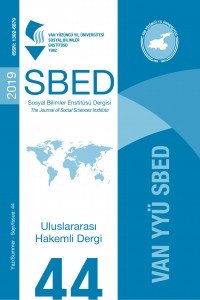Abstract
Heroism,
primarily in wars, has always been one of the focal points in the world
literature. In this regard, lots of authors have produced works tackling this
issue. Authors either produced their works which were based on true
observations or narrations. The most important figures are the war heroes. When
Stephen Crane wrote The Red Badge of
Courage, a very well-known novel of American Literature, he was a fairly
young guy with no war experience. Looking at the usual war novels, it is
expected to draw the flawless portrait of a hero. In those plots, all the ideal
heroes are to leave their family back, willingly committed and ready enough to
die, perpetually suffer for their country, and never complain no matter what.
This portrait has been drawn for a hero all through the course of time in our
collective history of the human kind.
Though quite many critics argue
that out of a farm boy Crane creates a real hero at the end of the novel, named
Henry Fleming, he proves to be a coward instead of a hero. The diversion of
Crane is very clear in that unlike all the other war novels, he flawlessly
draws the psychological portrait of a hero in questioning himself and his
glorified deeds. This article presents, with all the drawbacks and upheavals of
Henry’s being too much preoccupied with the idea of battle in his inner self.
You are supposed to find the innovation of Crane by creating a fully human
being in front of the heroic deeds either to accept or defy them unlike all the
other usual war novels.
Keywords
References
- Albrecht, R. C. (1966). Content and Style in the Red Badge of Courage. College English, 27(6), 487-492. Anderson, W. D. (1964). Homer and Stephen Crane. Nineteenth-Century Fiction, 19(1), 77-86. Andrews, J. C. (2015). South Reports the Civil War (Vol. 1278). Princeton University Press. Crane, S. (1962). The Red Badge of Courage: An Episode of the American Civil War. Dillingham, W. B. (1963). Insensibility in The Red Badge of Courage. College English, 25(3), 194-198. Hoffman, D. G., Dorson, R. M., Collins, C., & Ashton, J. W. (1957). Folklore in Literature: A Symposium. The Journal Of American Folklore, 70(275), 1-24. Johnson, R. and Clarence B. (1887). Battles and Leaders of the Civil: The Opening Battles. Vol 1, New York: Century Co. 1887-88. Kazin, A. (1956). On Native Grounds. 1942. New York: Anchor-Doubleday. Mailloux, S. (1978). The Red Badge of Courage and Interpretive Conventions: Critical Response to a Maimed Text. Studies in the Novel. 10 (1), 48-63. Weisbarger, B. (1958). The Red Badge of Courage. In Twelve Original Essays on Great American Novels, (Ed.). Shapiro, C. Detroit: 104-105; and Cox, 217-18. Wood, A. H. (2009). Crimson Blotches on the Pages of the Past: Histories of Violence in Stephen Crane’s The Red Badge of Courage. War, Literature & The Arts: An International Journal Of The Humanities. 21 (2), 38-57.
Abstract
References
- Albrecht, R. C. (1966). Content and Style in the Red Badge of Courage. College English, 27(6), 487-492. Anderson, W. D. (1964). Homer and Stephen Crane. Nineteenth-Century Fiction, 19(1), 77-86. Andrews, J. C. (2015). South Reports the Civil War (Vol. 1278). Princeton University Press. Crane, S. (1962). The Red Badge of Courage: An Episode of the American Civil War. Dillingham, W. B. (1963). Insensibility in The Red Badge of Courage. College English, 25(3), 194-198. Hoffman, D. G., Dorson, R. M., Collins, C., & Ashton, J. W. (1957). Folklore in Literature: A Symposium. The Journal Of American Folklore, 70(275), 1-24. Johnson, R. and Clarence B. (1887). Battles and Leaders of the Civil: The Opening Battles. Vol 1, New York: Century Co. 1887-88. Kazin, A. (1956). On Native Grounds. 1942. New York: Anchor-Doubleday. Mailloux, S. (1978). The Red Badge of Courage and Interpretive Conventions: Critical Response to a Maimed Text. Studies in the Novel. 10 (1), 48-63. Weisbarger, B. (1958). The Red Badge of Courage. In Twelve Original Essays on Great American Novels, (Ed.). Shapiro, C. Detroit: 104-105; and Cox, 217-18. Wood, A. H. (2009). Crimson Blotches on the Pages of the Past: Histories of Violence in Stephen Crane’s The Red Badge of Courage. War, Literature & The Arts: An International Journal Of The Humanities. 21 (2), 38-57.
Details
| Primary Language | English |
|---|---|
| Journal Section | Issue |
| Authors | |
| Publication Date | June 30, 2019 |
| Submission Date | March 13, 2019 |
| Published in Issue | Year 2019 Issue: 44 |
Journal of Yüzüncü Yıl University Graduate School of Social Sciences is licensed under a Creative Commons Attribution-NonCommercial 4.0 International License (CC BY NC).


